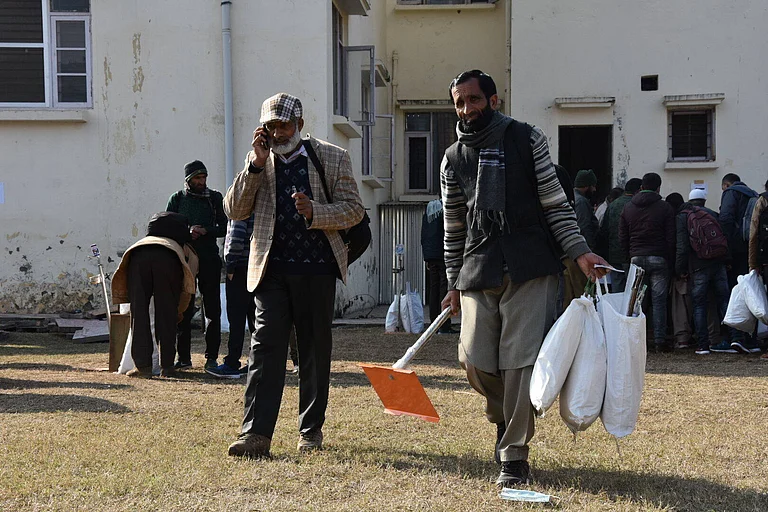The man is revolutionising Kollengode, a pocket of poverty in a relatively backward district of Kerala, Palakkad. 'Poverty exists in different shapes and forms,' says Prabhakar, a former English professor who left the cool groves of Washington academia to work among deprived women in Kollengode. His mission: to provide loans to the segment of society that is shut out from the traditional banking system. Poor rural women have no access to loans because the banks insist on collateral.
Prabhakar's inspiration came from Mohammad Yunus, the Bangladeshi economist who pioneered the system of micro-credit in which loans are provided to rural women and their latent entrepreneurial skills tapped as a means of repayment. Yunus, convinced that textbook economists did not work on the ground, advised his students to go to the village to observe economics in action. He established the Grameen Bank of Bangladesh in 1976, a grassroots institution committed to a programme of poverty alleviation through micro-credit. The World Bank and G-7 industrialised nations embraced the concept and decided to chip in. Today, the Grameen Bank of Bangladesh has a $100-million budget and aims to replicate the grameen banking concept around the world.
Prabhakar met Yunus in '95 and after a training stint in Bangladesh, returned to replicate his mentor's model in Kollengode. The district met the poverty criteria of the grameen bank system. It is populated by a cross-cultural community of subsistence wage labourers, many of whom are migrants from neighbouring Tamil Nadu. Most of its women are engaged in seasonal and casual labour such as agriculture and road construction.
Loan beneficiaries are selected on the basis of criteria like annual income, property value, source of subsistence, access to water and power, whether the menfolk are alcoholic or abusive. The loans are given without collateral. Why only women? Because, explains Prabhakar, 'Women bear the brunt of poverty more than men. Money given to men usually does not trickle down to the family. Also, women are more serious about bringing up their children.'
Given the social inhibitions of the local community, it took Prabhakar three years to establish the credibility of the Society for Rural Improvement (sri) which he set up with his own earnings. Barely 10 women signed on at first. Today it has a core group of around 500 beneficiaries. Each week at a time and place chosen by the beneficiaries, the repayment is collected at around 30 centres across Kollengode. A certain amount is set apart as mandatory saving. The women are divided into groups and repayment becomes a collective responsibility. A potential defaulter faces peer group pressure, which partly accounts for the almost 100 per cent repayment.
A basic stipulation is that the loan must be used for an income-generating activity of the beneficiary's choice. In Kollengode, most women use it to buy and rear cows. Lapses in repayment don't invite penalties common to the traditional banking system. 'Default is seldom deliberate. There could be an alcoholic husband who may have used up the money. So we adopt a flexible approach,' says Prabhakar.
With his six-member team, including managers Sangeeta and Sarada who've been trained in Bangladesh, Prabhakar has made an impact on the local community. sri is currently funded through a loan from the Grameen Trust of Bangladesh and is looking for alternative funding avenues. Says he: 'We don't want free cheques or handouts. A donation or grant is welcome, but we can absorb a soft long-term loan. After all, we have an excellent weekly repayment record.' Interested? Write to: Society for Rural Improvement, 'Saptaswara' (near Chinmaya Mission), P.B. No 2, P.O. Kollengode, Palakkad Dist., Kerala 678506; or call/fax at 0492-363060.
























